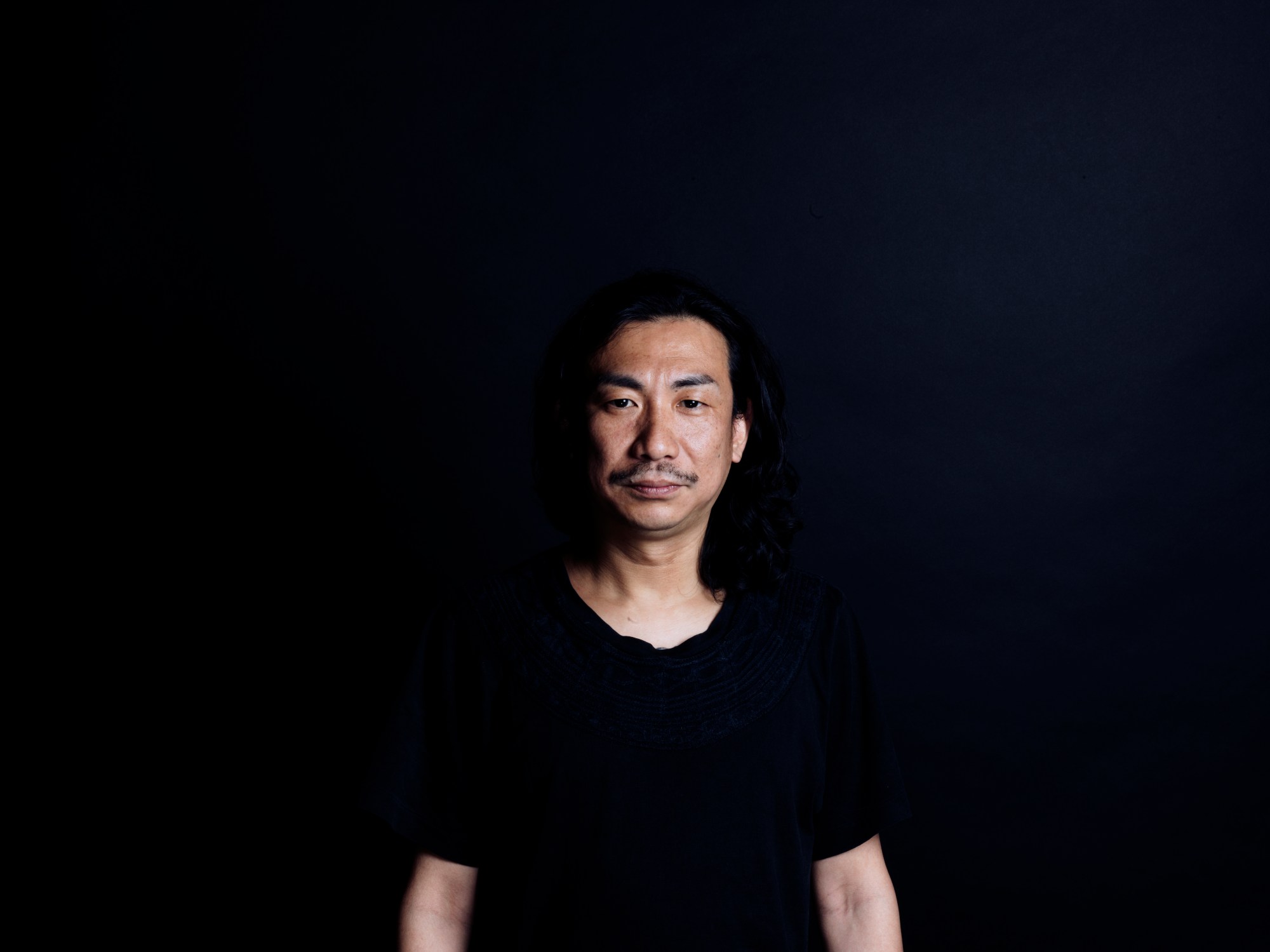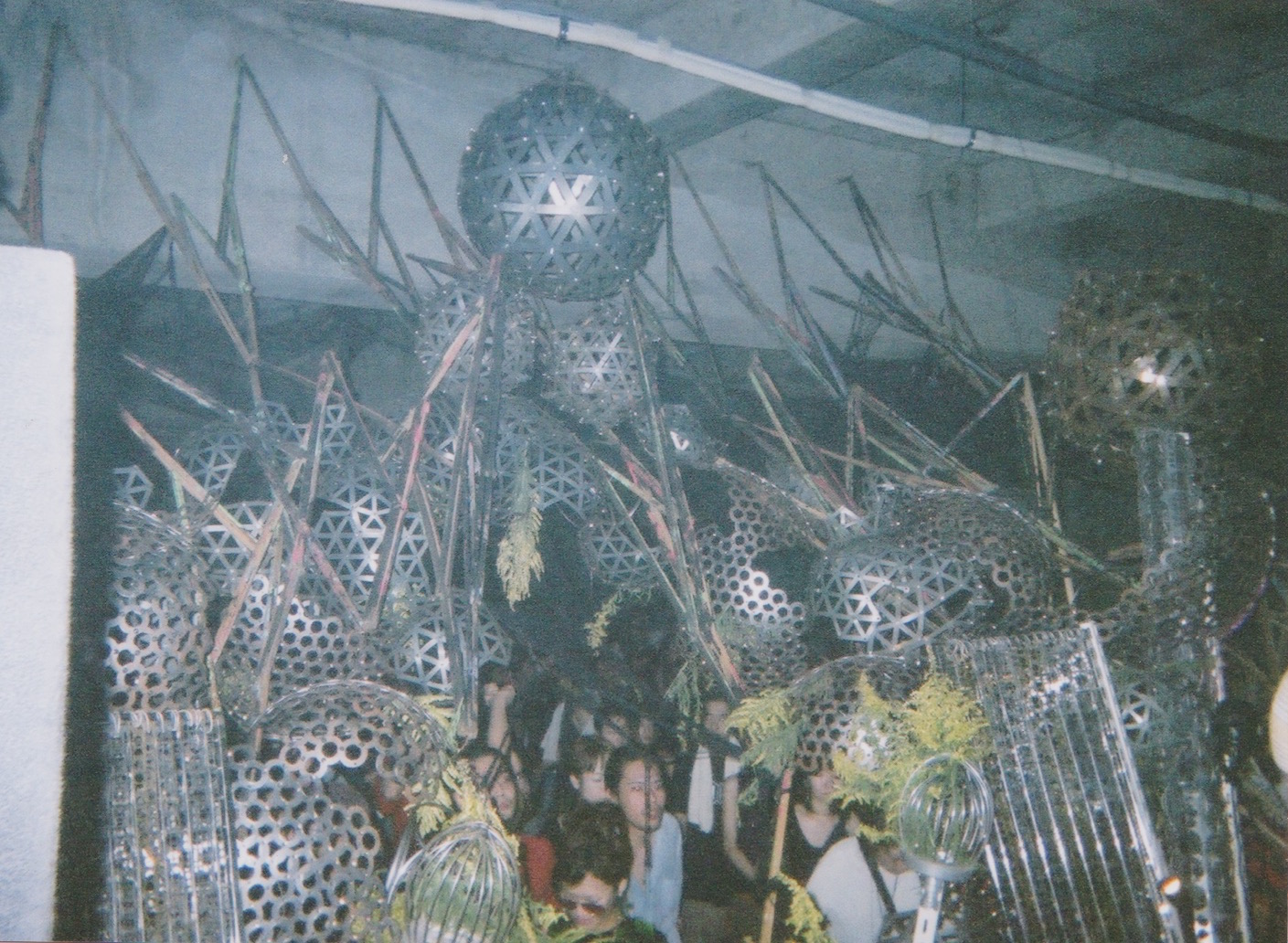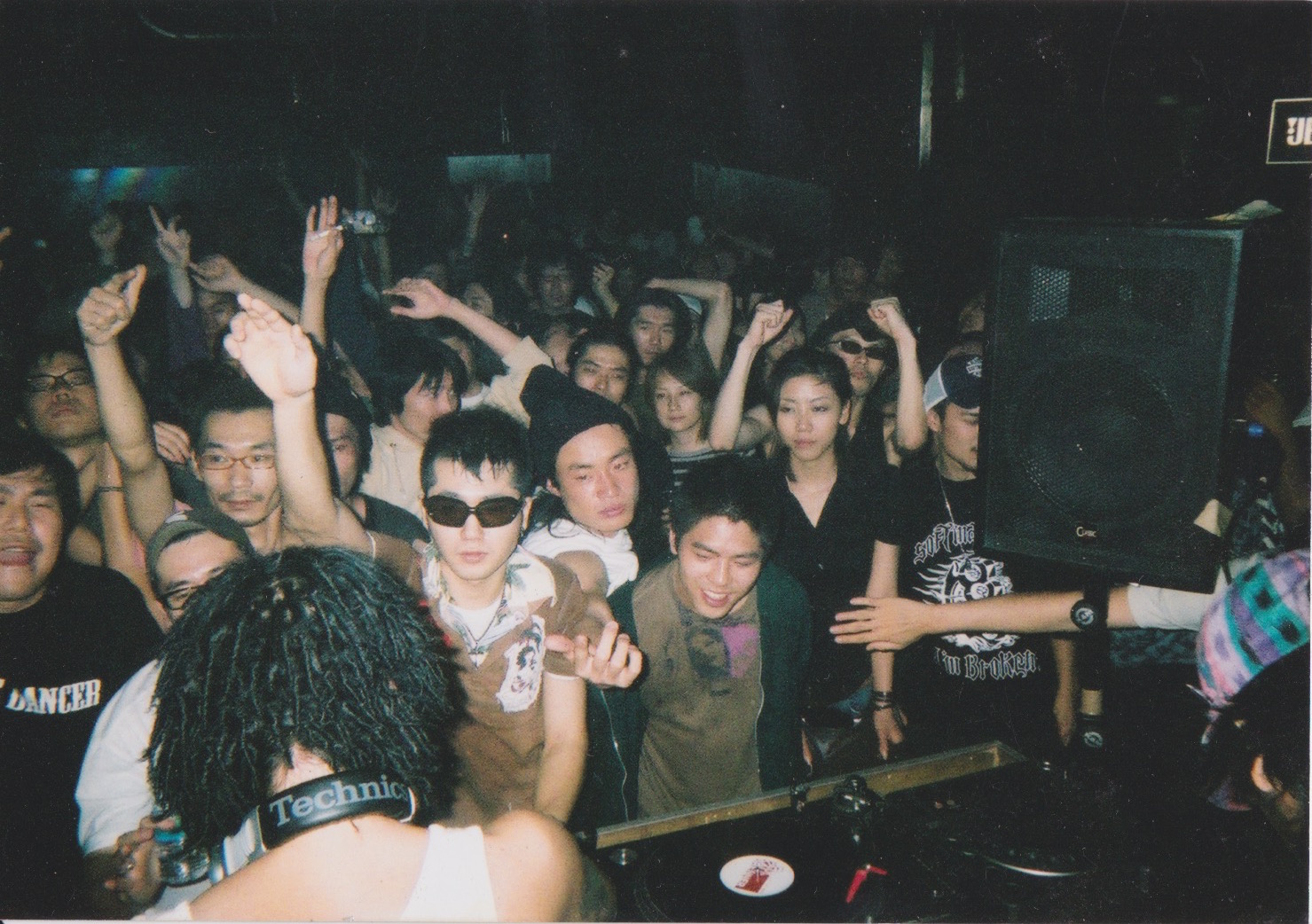When DJ Nobu heard Jeff Mills perform at a Tokyo nightclub in 1994, he described it as “a life-changing experience.” Despite his background in hardcore punk music (he was involved in his hometown of Chiba’s local scene and played in a few bands), something about the techno legend’s set floored him. “I really didn’t get along or fit in to the techno scene in Tokyo at the time, so I kind of distanced myself from it for awhile,” he tells i-D.
Now one of Japan’s leading techno DJs and a prominent fixture within the genre’s global landscape himself, Nobu has come full circle. Upon realizing he much preferred creating as a solo act rather than in a band, the artist shifted his focus towards disco and house music, performing at local clubs and making a name for himself as a DJ. During this time, Nobu launched his now-iconic Future Terror party, which he describes as “an antithesis of the club scene in Tokyo at that time.” First held in Chiba in 2001, it was founded as a response to the commercialization of clubbing and was meant to provide an authentic space void of trends or rules. Still ongoing, the party books guests with the likes of Aubrey Lowe, DJ Stingray, and The Black Madonna.
In 2006, five years into hosting Future Terror, DJ Nobu was invited to a newly opened members-only club in Tokyo called Mixrooffice, which was installed with oversized Funktion-One speakers. “I experienced techno with the resolution I had never heard before and it blew my mind so much that made me want to play techno,” Nobu explains. Now known for his raw, dynamic sound that braids an array of seemingly abstract sounds into one, DJ Nobu is a techno heavyweight in his own right. He just played San Diego’s CRSSD festival last weekend and has performances in Paris, Kiev, London and Rome all on his roster for March alone.
Below, DJ Nobu talks Japan’s golden age of clubbing and gives i-D an intimate look into the scene via a selection of photos from two Future Terror Parties and an underground rave called Raw Life. An exclusive, previously unreleased mix by Nobu from a 2005 Future Terror party sets the soundtrack.“I think this live recording from our party captures the special atmosphere we had and can give you a taste of Chiba underground back in time,” says Nobu.
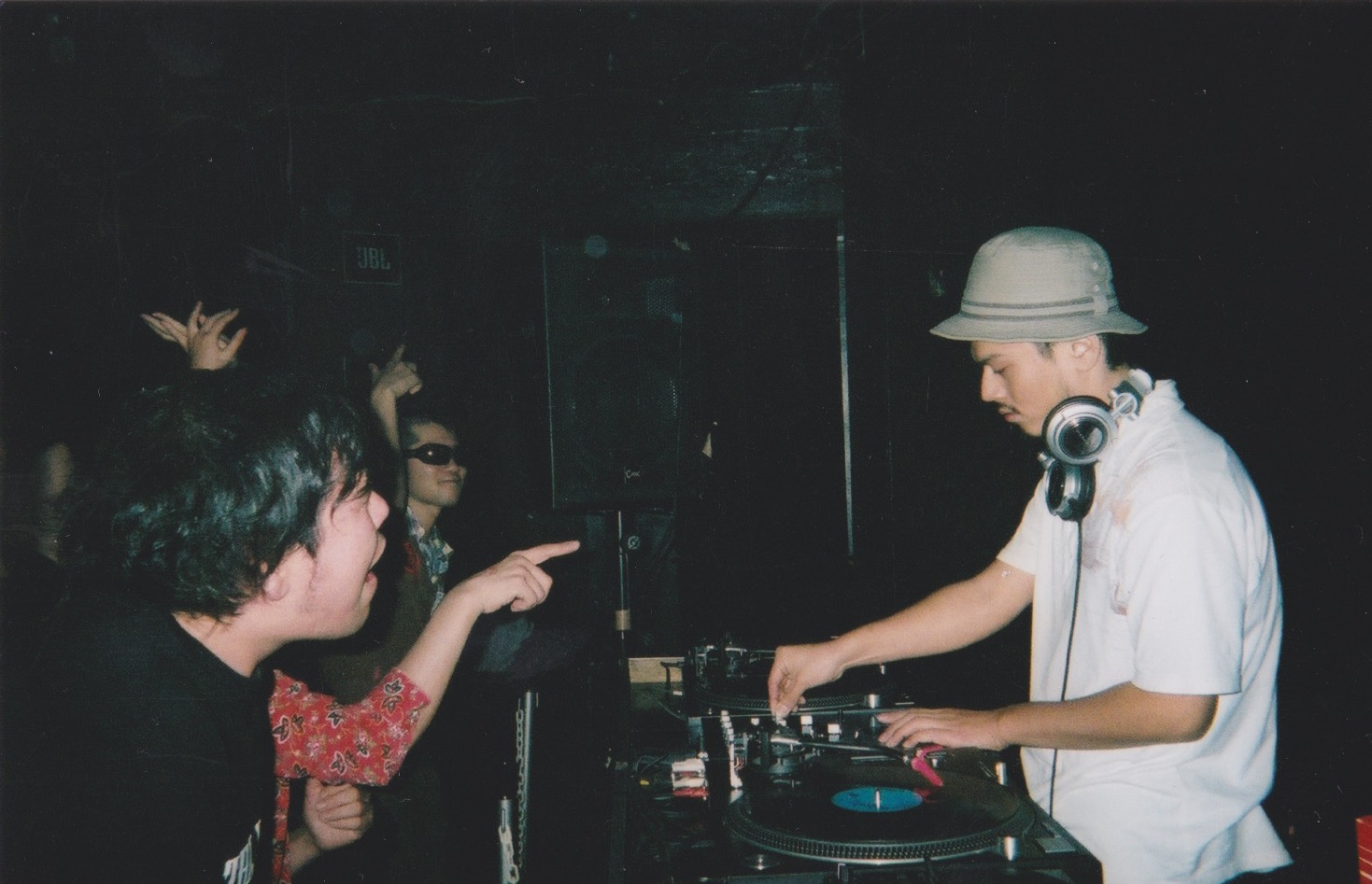
Why hardcore punk initially, and what did you take away from being involved with the scene?
Chiba, the city where I am from and still based in, had its own local hardcore punk culture from the 80s. It’s a type of music with strong social message, so I did try to understand what all these bands I liked were saying and issues they tried to address as a teenager. If you are someone with any kind of frustration or anger towards society, you could find something you could relate to. A lot of the issues they raised are still very much relevant in today’s world. What I also learned from this scene is simply to follow your heart, respect others, and not to be afraid to initiate something new if you feel the need for it. I think it really set my perspective on how I see and deal with political and social issues, and how I take actions.
Are there any such issues going on in Japan right now that you’re passionate about?
Around me, I see poverty as a very visible problem. It’s probably not how you imagine Japan to be, but there are many people struggling economically and I feel like this struggle often ends up in others not being considerate towards weaker people. The other day, I saw an ultra-right wing group marching through our city spewing hate speech fully protected by the police. I often feel completely helpless. There are poor families dying of starvation, most couples can’t afford to have children and the population is growing older and older but we’re shutting out refugees and immigrants. I feel like the whole social security system is falling apart. This is all going on while our government is busy falsifying fiscal data and public statistics and endorsing Trump for a Nobel Peace Prize…our everyday life is really becoming like a bad nightmare these days.
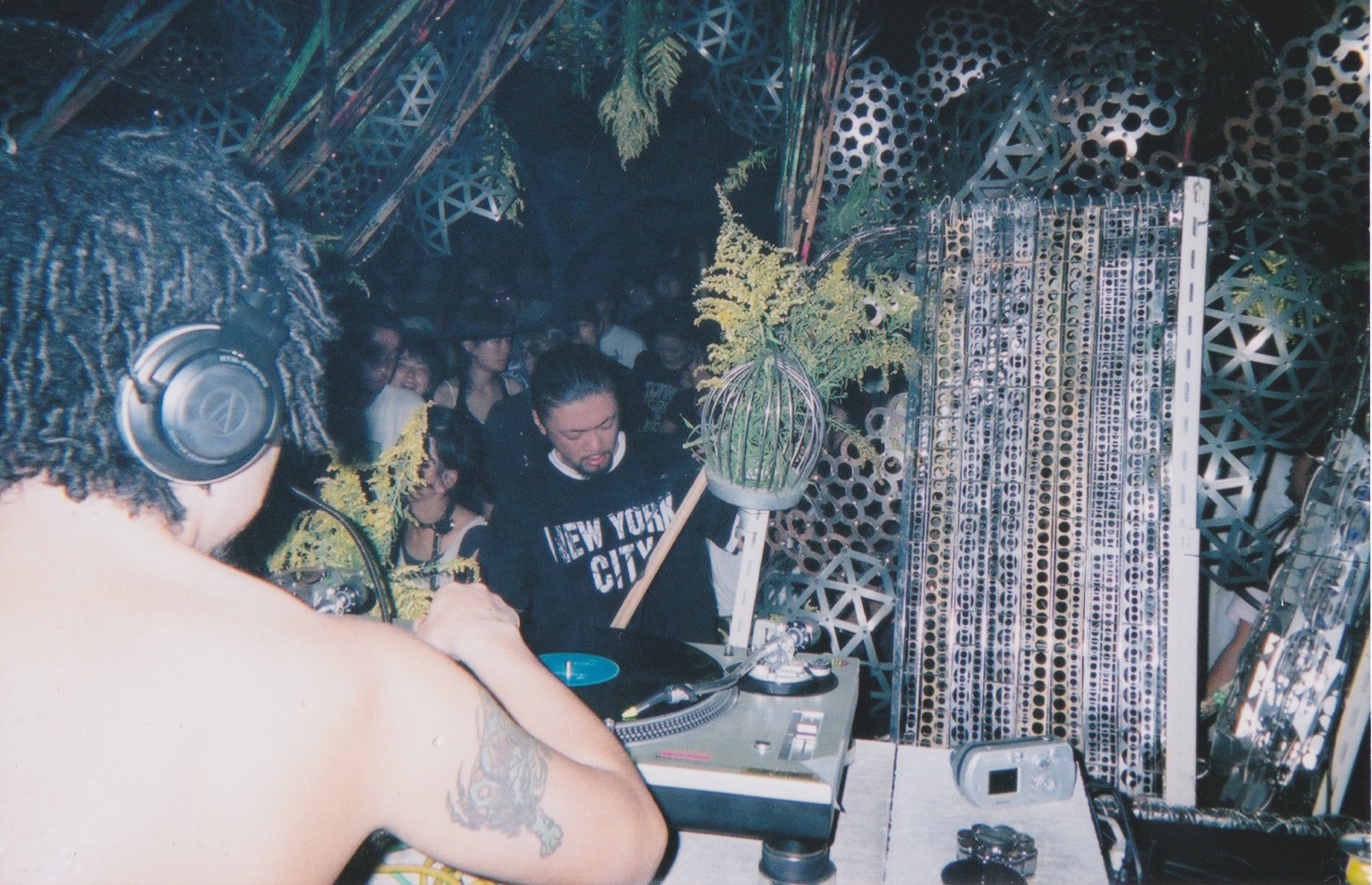
What was the impetus behind founding Future Terror?
Chiba is located right next to Tokyo, so I’d frequented clubs in Tokyo since I was a teenager. I had some amazingly fun times there, but starting in around 1998 everything became commercial and less interesting to me. So I decided to start something more fun and unrestricted in my local city.
What was the vibe like, what made the party so special when it was first started?
Future Terror was impressive every time. Our party provided an experience that no other existing clubs could. For example, we used club space but the audience turned it into special atmosphere that was different from usual night. It was like we were just supporting them to really go for it, to release themselves and create a real party. It really felt like it was the beginning of a new era. There was a lot of hopefulness and energy which I had never felt in any other parties.
Our first attempt was so successful, I remember I went down to the park by the sea near the venue and just sat there enjoying the afterglow of the party a few days later.
What kinds of places has the party been housed in?
We liked using unique places such as beach parks, restaurants, wedding centers and soon-to-be-demolished buildings. Now, we mainly use a venue called UNIT in Tokyo and a local club in Chiba.
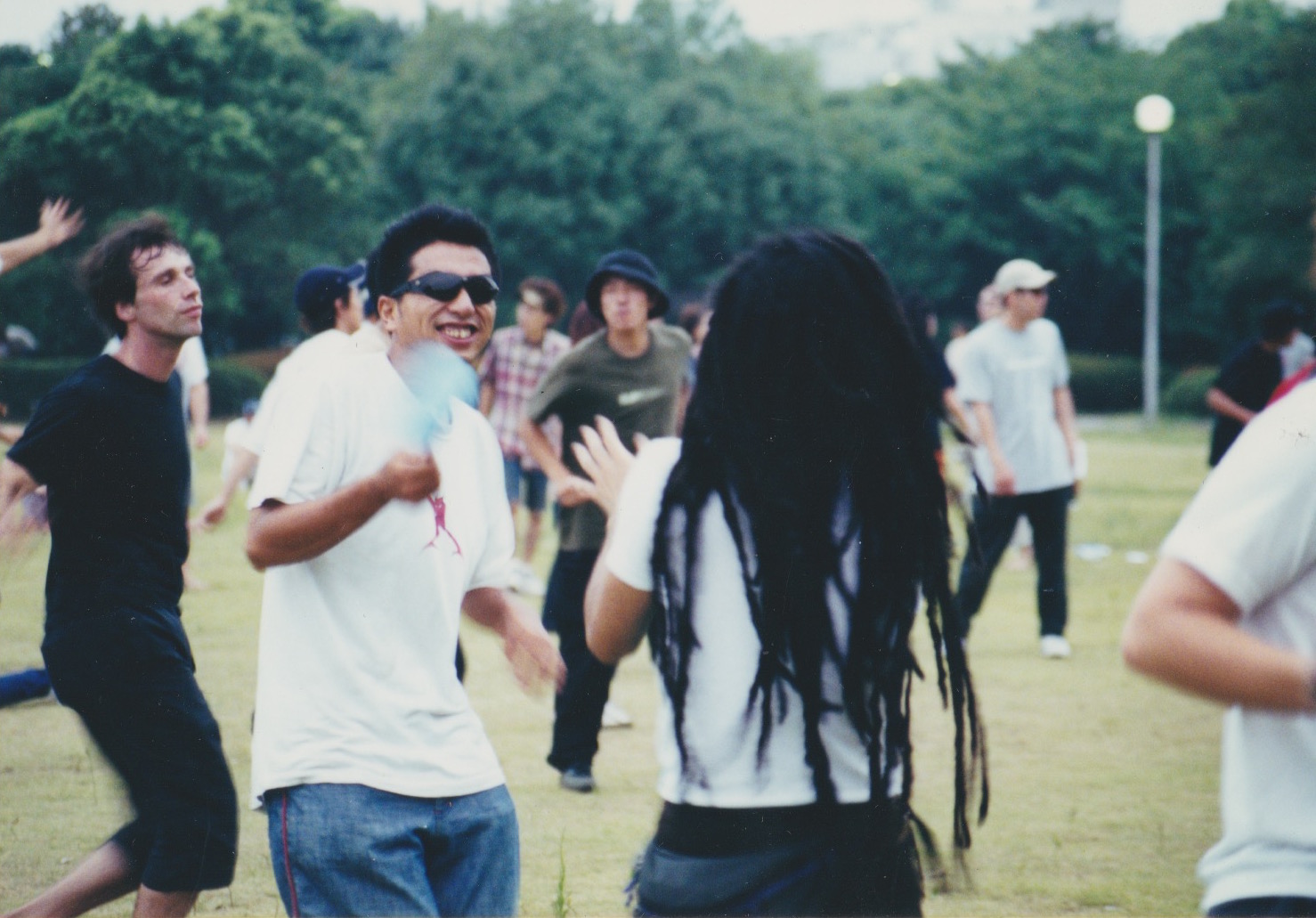
How were you able to grow Future Terror into the staple that it is today?
We simply kept on pursuing what we ourselves really enjoyed regardless of trends. I think what’s most important is to stick to what you believe in. In terms of booking policy, we just trust our own ears and word of mouth and don’t rely on media exposure or publicity. For example, our recent guests are Solar, DJ Stingray, Morphosis, Eric Cloutier, Robert Aiki Aubrey Lowe, Blind Observatory, Metasplice, Senyawa from Indonesia, Goat and Synth Sisters from Osaka.
You once said in an interview that there’s no harder job in Japan than being a DJ—why is that?
Because of the economic recession, it’s generally getting more and more difficult to earn a substantial fee. Seniority, sexism, ageism, various problems are rampant in my world. They’ve been improved but their roots are deep. The amended Fueiho (anti-dance law) is not helping alleviate the legal and social risks that small cultural venues that built the foundation of Japan’s underground music scene daily faces.
What’s the most important thing to you when DJing a show?
To create surprises, changes in consciousness, joy and immersive musical experience I want my set to be a “mind trip” as well as “body music.” These are the important things I try to achieve when I DJ.
Who are some other Japanese DJs that people should know about?
OCCA, HARUKA and Wata Igarashi are on the top of my list. In addition to that, I think AKIRAM EN, Sapphire Slows, Keihin, DJ YAZI, Yousuke Yukimatsu and Ena are definitely the DJs worth looking out for. He is not a DJ, but a producer DAISUKE UCHIMURA, who is scheduled to release an EP from my label, Bitta, is also interesting.
